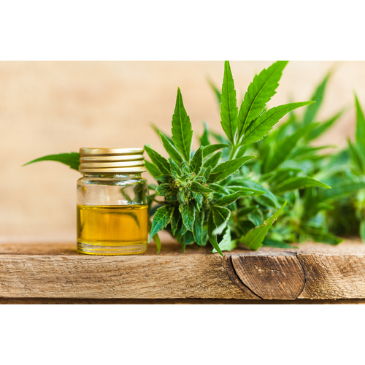Within the past couple years, Delta-8 THC has skyrocketed in popularity across the country as a “legal” substitute and loophole around many state and federal laws prohibiting “marijuana” and Delta-9 THC. To understand why that is, it’s important to first understand what exactly these chemicals are, and the legal definitions of the different terms.
Definitions
 The species of plant often referred to as marijuana or hemp are different types of the same plant, Cannabis sativa L. Legally, the only difference between what we might call ‘marijuana’ from what we might call ‘hemp’ has to do with the different chemicals and different amounts of chemicals, called “cannabinoids,” found within specific plants.
The species of plant often referred to as marijuana or hemp are different types of the same plant, Cannabis sativa L. Legally, the only difference between what we might call ‘marijuana’ from what we might call ‘hemp’ has to do with the different chemicals and different amounts of chemicals, called “cannabinoids,” found within specific plants.
One of the most prevalent cannabinoids within most cannabis is called “delta-9 tetrahydrocannabinol,” and is often shortened to just “THC.” It is the primary chemical responsible for activating a user’s psychoactive receptors and producing the “high” feeling that one gets from consuming cannabis. This is where one has to get into the “weeds” of Tennessee law, because § 43-27-101(4) specifically says, although there are different types of “tetrahydrocannabinol,” like delta-8, that whenever you see “THC” in Tennessee law it is specifically referring to delta-9. This is because the law was written prior to the discovery and ability to concentrate delta-8 THC in cannabis, and its natural occurrence in cannabis is not significant enough to produce the sort of “high” a user receives from the synthesized products around today.
Another prominent cannabinoid is called “cannabidiol,” often shortened to CBD. CBD does not cause any of the psychoactive effects that THC does, and it has been recognized for many studied and potential health benefits. CBD has not shown potential for drug dependence or abuse, and it has been used to treat a variety of ailments like epilepsy, pain, insomnia, and anxiety; the potential downsides are also the same that you might expect from over-the-counter medications like nausea or fatigue.
Legality
The primary factor in determining the legality of the cannabis plant or cannabis product in question is the amount of THC within the plant or the plant the product came from. As a starting point, Tennessee has defined “marijuana” as any cannabis plant, any part of the cannabis plant, or most products coming from a cannabis plant. The major exception to that rule, is if the plant falls under the definition of “hemp,” meaning the plant has less than or equal to 0.3% delta-9 THC by dry weight.
“Marijuana” is a regulated substance in Tennessee, and currently a schedule VI controlled substance pursuant to § 39-17-415. “Hemp,” on the other hand, is not a regulated or controlled substance.
Delta-8 THC is a new issue that Tennessee legislators and lawyers have had to deal with, because although many state laws regulate and criminalize “THC,” that specifically means delta-9. Earlier this year, the Tennessee legislature introduced HB 1927/SB 1904, a bill that seeks to change the definition of “marijuana” to include other THCs and psychoactive chemicals like delta-8, while leaving chemicals like CBD under the definition of “hemp.” The bill has been progressing through both the House and the Senate, but it is not a law yet.
Federally, the 2018 Farm Bill also legalized and regulated “hemp” in a similar fashion, but there is still debate over whether the definition allows for delta-8 to fit into that category of what is legal to produce and sell.
If you have been charged with possession of marijuana and it was actually a CBD product, please reach out to our attorneys licensed in both Tennessee and Georgia.
We also represent businesses involved in the CBD business. Mr. Brock is a member of the hemp law group. Find out more about that here.
